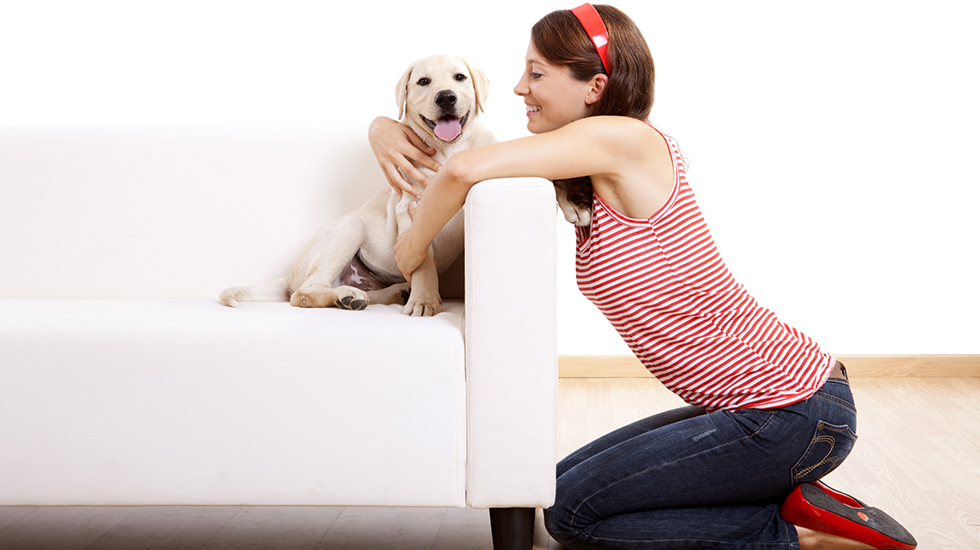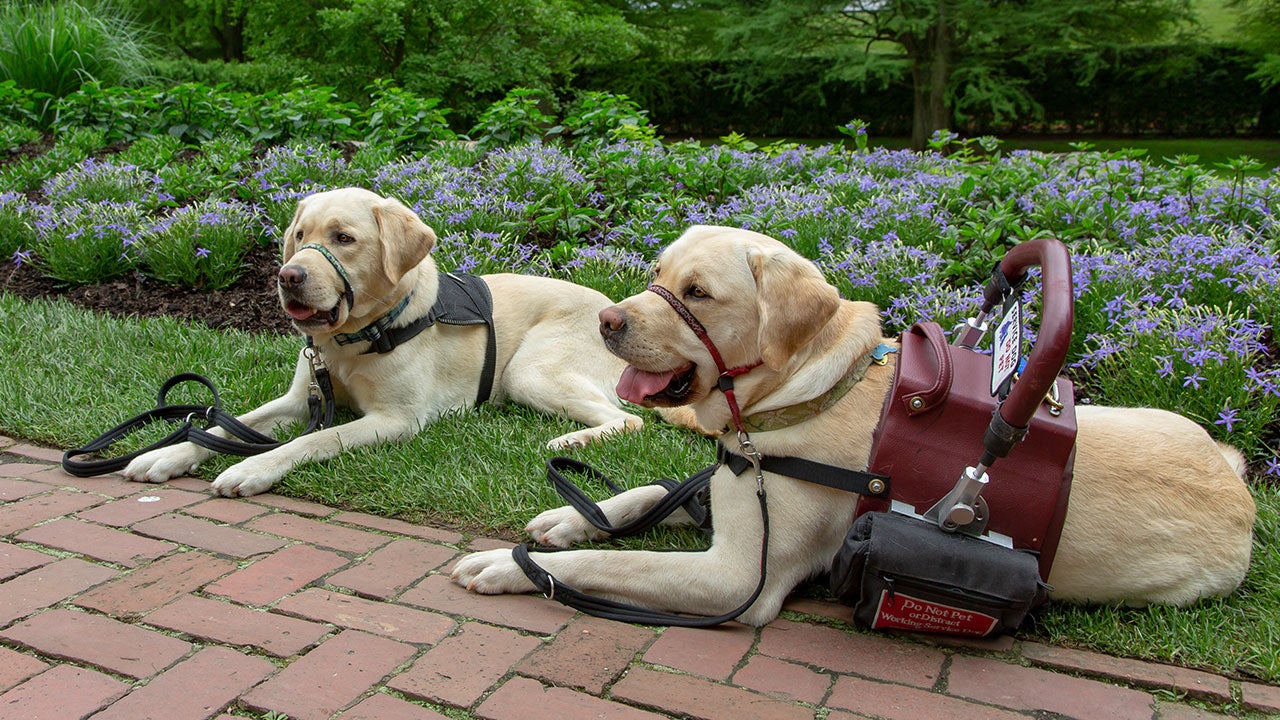
The London School of Hygiene and Tropical Medicine has begun training medical detection canines to smell drugs in people. These dogs can detect as many as 750 people an hour or 5,000 people per minute. A successful dog might also be trained to detect signs of cancer. It is important to know your rights and understand the procedures that police use when searching you. In addition, police cannot ask you to wait for a drug dog to arrive.
These dogs do have a strong sense of smell but aren't interested in drug-related smells. They search for their favorite toys and associate it with drug-related scents. These dogs have an intense hunting instinct and do not falsely signal for a reward. They mistakenly associate the smell of drugs and their favorite toy, which creates a false alarm. And because they are used to searching for illegal drugs, they also think that finding traces of them is a reward.

In recent years, the demand for detection dogs has grown rapidly. The United States alone has received more than 16.5 tons cocaine. If this amount of cocaine were laid out end to end, it would cover more that two and a quarter miles. In countries with low standards of living, this could help prevent the spread of deadly diseases. But what about those with low incomes? Because of the limited supply of registered breeds, training dogs for COVID-19 remains in its infancy.
Professional dog sniffers will not be able to detect drugs and explosives like your daily pets. They are trained to be highly sensitive and trained to detect drugs and explosives. They are not only capable of detecting drugs but they can also be your best friend. Recent case saw a drug-sniffing puppy run through the traffic and slip off its leash at customs crossing. The dog returned home with a brick containing marijuana. Although the dog was unable to find the source of the drug, the training helped him detect it better.
Dog sniffers are an essential part of drug detection, but their use is controversial. Dog sniffers have been criticized for their accuracy in drug detection. But dogs are often trained and capable of detecting all types of illegal drugs. They can detect all kinds of drugs including heroin and even opiates. These drugs may be mixed with household pets, breakfast cereal, or even exercise in a paddock.

It's hard to stop a cop from using a dog noser to detect drugs. But you shouldn’t interfere with their work. When you see a cop, tell them to get back and take video. You may find it difficult to continue doing what you are doing. They cannot ask you to move but can follow your lead. Dogs can be triggered by a smell in their urine.
FAQ
What kind should I feed my dog?
A healthy diet is essential for your dog.
High-protein foods include chicken, beef and fish as well as eggs and dairy products.
Other foods that are high in carbohydrates include fruits, vegetables, bread, cereals, pasta, rice, potatoes, and beans.
Foods that are low in fat include lean meats, poultry, fish, nuts, seeds, and whole grains.
Always consult your veterinarian before feeding your dog different types of foods.
What is pet insurance?
Pet Insurance offers financial protection to pets in case they are injured or become sick. It also covers routine medical care like vaccinations, spaying/neutering and microchipping.
Additional benefits include emergency treatment in the event your pet becomes ill or is involved in an accident.
There are two types to pet insurance
-
Catastrophic – This insurance pays for the medical costs of your cat in case of serious injury.
-
Non-catastrophic - This type covers routine veterinary costs, including vaccines, microchips, and spays/neuters.
Many companies offer both catastrophic as well as non-catastrophic coverage. Some companies offer only one type of coverage.
These costs will be covered by a monthly premium. This amount will depend on how much you spend to care for your pet.
The price of your insurance depends on which company is chosen. Shop around before making a purchase.
Many companies offer discounts for multiple policies.
You can transfer an existing pet plan from one company to another if you have it.
If you do not want to buy pet insurance, you'll need to make all of the payments.
There are still ways you can save money. You can ask your veterinarian about discounts.
You might be disregarded if your pet is seen often.
Or, you can find a local animal shelter where you can adopt a pet instead of paying for one.
Remember, no matter what kind of insurance you buy, you must read the fine print carefully.
It will inform you of the amount of your coverage. If you don’t understand something, contact an insurer immediately.
These are the three most important things to do before you get a cat.
These are the questions to ask before you buy a cat.
-
Is the cat suffering from any health problems?
-
Will my cat eat all the food I have prepared?
-
Do I want a cat because I love cats, or do I just want a pet?
Which pet is your favorite?
The best pet is one that you love. There is no correct answer. Everyone has their own opinion as to which pet is the best.
Some people believe that cats can be more loving than dogs. Others say that dogs are more loyal and loving. Others still believe that birds are the best choice for a pet.
Regardless of the type of pet that you decide to get, it is important that you determine what type of pet best suits you.
If you are friendly and outgoing, a dog might be the right choice. A cat is the best choice for you if you are shy or reserved.
Consider the size of your house or apartment. If you have a small apartment, you will need a smaller pet. On the other hand, a large house means that you'll need more space.
Remember, pets need lots and lots of attention. They should be fed on a regular basis. They need to be taken for walks. They must be brushed regularly.
You'll be able pick the best pet for you if you have all of these knowledge.
Statistics
- Pet insurance helps pay for your pet's medical care, with many policies covering up to 90 percent of your vet bills. (money.com)
- * Monthly costs are for a 1-year-old female mixed-breed dog and a male domestic shorthair cat less than a year old, respectively, in excellent health residing in Texas, with a $500 annual deductible, $5,000 annual benefit limit, and 90% reimbursement rate. (usnews.com)
- It is estimated that the average cost per year of owning a cat or dog is about $1,000. (sspca.org)
- It's among a relatively few companies that provide policies with a full (100%) coverage option, meaning you are not responsible for any co-payment of bills. (money.com)
- For example, if your policy has a 90% reimbursement rate and you've already met your deductible, your insurer would pay you 90% of the amount you paid the vet, as long as you're still below the coverage limits of your policy. (usnews.com)
External Links
How To
How to train your pet cat
Before you can train your cat, it is important to understand the nature of your pet. Cats are intelligent and have complex brains. Cats are intelligent, emotional creatures. If you want to make sure that your cat behaves well, then you must take into consideration his/her personality. It is important to know how to properly handle your cat.
It is important that cats remain independent. This means that cats do not like to hear "no." You may be angry if they tell you "no". You should not hit your cat if he/she does wrong. Although your cat deserves love and affection from you, it doesn't mean that you should treat him/her as a human being.
If you suspect that your cat may have some issues, then it is best to work together to fix them. Talk to your cat calmly and gently. Do not yell at him/her. Do not make him/her feel bad by shouting. Also, your cat can't be forced to eat. Sometimes, your cat won't eat. If this happens, it is time to give treats. Overeating could result in overeating.
Your cat should be kept clean at all times. You should wash your cat every day. To clean dirt and dust off your cat, you can use a wet cloth. Fleas should be removed from your cat's skin. Flea bites cause skin irritation and even allergies. If you notice any signs of fleas, then you should use a special shampoo to remove them.
Cats are social animals. Cats love to spend time with their owners. It is important that you spend quality time with your pet cat. Play with him/her. Feed him/her. Cuddle him/her. These activities will make your cat happy.
If you want to train your cat, then you should start early. Your kitten should be trained by you as soon as he/she turns two weeks old. The best age to begin training your cat is around three months old. At this age, your cat will already be fully grown and strong enough to learn new things.
When you show your cat tricks you must explain every step. When teaching your cat how to sit, for example, show it the chair first. Then, reward your cat by giving him/her a treat. You can repeat these steps until the cat understands.
Remember that cats are smart animals. Cats are smart and can figure out how to do tasks. They require patience and persistence. You can't expect your cat or dog to be able instantly to master a task. Give your cat lots of time to practice before giving in.
Keep in mind that cats come from the wild. They are playful and naturally curious. If you let your cat run free, he/she might accidentally knock objects away. Your cat should be kept in a safe space where he/she will not hurt himself/herself.